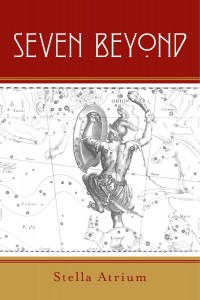12 Tips for Writing Good Book Reviews
12 Tips for Writing Good Book Reviews
There are a number of steps to take to write a good book review, but the most valuable tip of all may be this one: remember that book reviews have more than one audience. They aren’t only for readers. Book reviews are valuable to the book author who wants others to learn about her book; the book reviewer who is building a portfolio of reviews; readers curious about a new book; the publisher; fellow reviewers who are networking and co-marketing; and fellow blog editors may re-publish your review on a digest blog.
DO
1) Choose a Genre you Enjoy. Be certain you are reading/reviewing in a genre you prefer. Don’t be criticizing a writer for writing in a genre you don’t enjoy.
2) Get the Facts Straight. What genre, length, style, and appeal? By appeal I mean is the book targeted to the LGBT audience, or does the story include erotica? Mention who may want to avoid the book as well as who may find the read rewarding.
3) Summarize. Include a two-sentence overview of the story – pithy and descriptive. Remember, no spoilers.
4) Reference the Author’s Career. Mention where this book sits in a series or in the arch of the writer’s career, if applicable. Relate the story to previous work, such as “more geared to a younger audience”, or “scarier even than his last novel”.
5) Be a Confidant. Write as if you are confiding to the reader. Tell her what will she like if you pass along the book to her. “Don’t read this story on Sunday because you’ll be up all night and miss work the next day.”
6) Be Quotable. Include a few shorter sentences that can be quoted by the writer, or by Amazon, or by a blog that re-publishes reviews.
DON’T…
1) Criticize without Praise. Some reviewers embrace the need to be critical. Suggestions for improvement are fine, but avoid the “this is how I would do it” tone. Include sugar with the vinegar.
2) Focus on Yourself. Mention your qualifications, but don’t make the review about you. Your emotive responses are a good way to connect with the reader who looks to you for advice. Your story about meeting the writer once at a sci-fi convention belongs in a profile article, not a review.
3) Complain. It’s okay to show your smarts by comparing the story to Homer or JK Rowling. However, don’t speak in that complaining voice. “It wasn’t what I expected,” or “it took too long to get started.” Nobody knows your expectations, or cares.
4) Do Blow-by-Blow Analysis. Readers want to know if they should invest time and money, not how Part II opens in a different voice. A book review for your 8th grade teacher had to show that you read the whole book.
5) Attack. It’s fine to list what was irritating or inconvenient such as too many character names or sudden time changes, however personal attacks, don’t serve anybody. Writing something like, “I was looking forward to this book, but was so disappointed” not only can be damning to the writer, it also can damage your reputation as a reviewer.
6) Be Wordy. Remember that readers spend about 60 seconds on your review, so provide a strong opening and write sparingly. Edit the sentences for any ideas that don’t serve the theme or the constructive criticism.
You know you have succeeded when readers become fans and when writers solicit you for reviews of new work.
—
Stella Atrium is an author based in Chicago Illinois USA.
Stella honored us with a sponsorship during the month of March 2014 in celebration of the her novel Seven Beyond. We are proud to have her as a supporting sponsor.
Follow Stella on Facebook and on Twitter @SAtrium.
Category: How To and Tips
Comments (16)
Trackback URL | Comments RSS Feed
Sites That Link to this Post
- Writing Resources – Luckdancing | October 20, 2016
- 12 Tips for Writing Good Book Reviews - Women W... | March 15, 2014
- 12 Tips for Writing Good Book Reviews - Women Writers, Women ... - IBook Store | March 15, 2014


























Hi Stella.
Thanks so much for the great article.
I have however a very awkward question: what do you do when you are asked to review a book that is thoroughly terrible? No knowledge of the subject matter, no effort to research it, full of clichés and prejudices and urban myths, and written in poor English, e.g. getting registers wrong, and with little attention to basic grammar?
How do you possibly review a book like this? Especially when you realise that this indie author is part of one of those promotion teams, and the other indie authors in the team are leaving him 5* reviews…?
I have just started reviewing books, as I am a prolific reader and so many are really worth talking about. I’ve read some very nice “indie” books, some with a few problems here and there, and some that were well written but I found boring; but this book has got me completely lost.
So… What are the ethics of reviewing bad books (or even books that have problems in some aspects, but are perfectly salvageable)…? I feel that my first duty is towards my readers, and therefore that I need to be honest. But is it fair towards the writer, even if they could benefit from my criticism?
Any advice much appreciated!
Great article Stella. Wish the NYT book review followed your advise “don’t focus on yourself.” i just skip to the 4thh paragraph to read about the book.
Stella,
Could you point us to what you think is a good example of a good book review? You own or otherwise.
Also, how long do you like them to be (approx number of words)? I know it will depend on the format, publication, etc. but ballpark, please.
BTW – I’ve put your Seven Beyond on my to-read list. It appears outside my usual novel range, but it’s good to stretch, yes?!
Baylou, thanks for your note. Book reviews vary in length depending on where they are published. A reader review in Amazon is best at six sentences, for example. A review posted on writer’s page for a promotion site can be 250 words (full page).
Here’s a review that I found useful because it included something for each audience, even pithy observations that are 140 characters (or less) for Twitter.
http://www.bookviral.com/stella-atrium-seven-beyond/4582795954
I hope you like the story in SEVEN BEYOND.
I like your recommendation of a two-sentence review of the story. I find that too many reviews are often a summary of the plot for the book and do not go into any other direction or depth. One other thing that I also like to see in reviews are connections with other similar books or writers. Writing good book reviews, I know from experience, is a very delicate and tricky business. Some formula can be helpful though, so thank you for sharing your tips in this age when everyone really is a critic.
Lori, I also like to place a book I’m reviewing in its genre and alongside similar books. We can get carried away with connections, though.
One promotion item to avoid is “If you liked Jurassic Park, you’re going to love…” We run the risk that readers are disappointed that characters from the famous book were missing in your effort.
Another connection that rankles is “Harry Potter meets Hangover II.” That’s a sales pitch method from Hollywood in the 1980’s that has run its course.
Many writers claim their books aren’t like other writers — an original work that deserves a hearing on its own merits.
I completely agree with you here. Those kind of connections are just irritating already, I find. I was not thinking of placing the book alongside better known books but books that the reader might have not heard about, so that the review leads to the discovery of something else new and exciting to read.
Lori, I think your urge to place the book with others is a service to the reader. I find that when I like a writer, I read all the other titles by her. So one strategy is to place the book within the pantheon of her earlier works.
Continues a series? Use characters that were in an earlier series? Different from the series by what measure? Growth in writing style? Growth in mature insights?
Here’s a review that I wrote for the series finale of 12 books by Robin Hobb. I struggled with **spoilers**, but compared her dragons to those in GRR Martin’s Game of Thrones. I hope you like it!
http://stellaatrium.com/robin-hobb
Thank you. I’ll take a look. I’m sure I will love your reviews.
Stella, Before reading your post I hadn’t thought of all the different angles of a review. I’ve known reviews are valuable, especially after writing several that took days to develop, but I hadn’t thought of the whole eco-system as you presented it.
I especially liked your mention of being a confidant. I hadn’t thought of it before but it’s at that moment in reading a review that I lean in and take the message to heart – as if it’s a whisper spoken just for me. Stepping out of the more formal voice and to say something personal is my favorite part. Thank you so much for contributing this to Women Writers, Women Books. And thank you so much for being a supporting sponsor this month!
Anora, thanks for the kind words. I have connected to many readers through Twitter after this article was posted. The magazine’s global reach is stellar!
Thanks for such a great post, Stella! I write a review blog that is devoted solely to debut authors and aspiring authors. I am working on my debut novel currently. When I first started out, I made a few of the “don’t” mistakes. I would also add to the “don’t” list, don’t say that you like something that you really don’t, because you are afraid of stepping on an author’s toes. There are diplomatic ways (constructive, not destructive) to phrase it. You aren’t doing the author a service to improve and you are misleading the reader. I have found that if you phrase your displeasure in a constructive way, it is respected by the author and they are not hurt. For example, one time, I said that I didn’t feel the story was complete, that I thought the premise was good and I’d like to see more. The author thanked me and said that she may rework it. I have a very over-saturated queue and have been closed to reviews for quite some time I am not sure when I’ll be able to take new requests. I am happy to say that a couple of publishers have asked me to review for their clients. I consider that a win 🙂
Rebecca, thanks for your note. A quality reviewer can be overwhelmed with requests, depending on the genre she prefers. And quality is tied to diplomacy, as you say. I like your website!